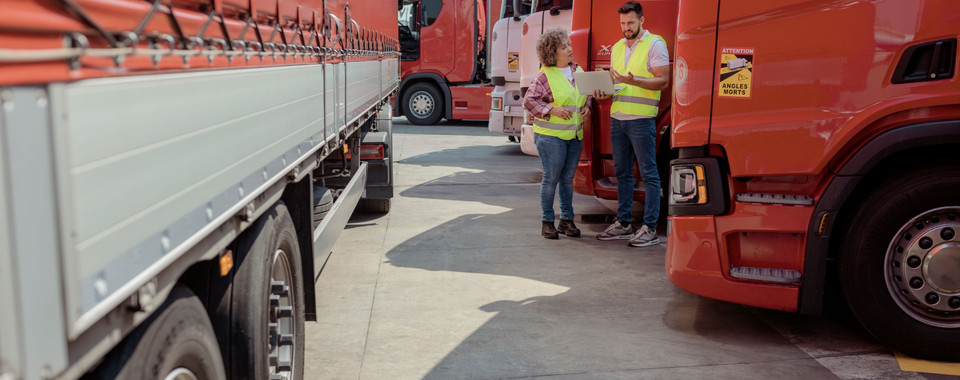
Sep 2, 2024 // Zdravka Ley
Smart yard management breaks growth boundaries
How yard management software breaks down natural infrastructure boundaries.
Apr 15, 2024 Zdravka Ley
ShareThe countdown is on. From 14 June to 14 July 2024, it's that time again: the national football teams will be competing for the title at the 2024 European Football Championship in Germany. An event that poses major challenges not only for the teams and sports fans but also for logistics experts.
The dimensions of this major event are overwhelming: 10 stadiums, 51 matches, and 16,000 passionate volunteers from 124 nations. Around 67,000 fans are expected to attend each match, or around 2.7 million people in total. Up to 12 million could celebrate and watch the matches on the fan miles in the ten host cities.
The European Championship in Germany is therefore not only characterized by sporting competition but also by precise logistical planning and execution.
Organizing a European Championship requires comprehensive logistical planning: from transporting the goals, fencing, TV equipment, lighting, and sound systems to setting up and dismantling the entire infrastructure. All elements must be perfectly coordinated in terms of timing. Detailed planning for transport, loading and unloading, storage areas, insurance, and customs formalities is essential. Experience has shown that challenges can arise at every turn, requiring the logistics plans to be adapted flexibly and quickly.
Early planning of access routes and logistics areas is essential for smooth event logistics. However, flexibility remains the be-all and end-all: unforeseen disruptions in the transport process or other short-term events require fast and efficient crisis management. Intelligent logistics systems based on artificial intelligence help to avoid bottlenecks at the event location and optimize the event process.
When preparing for major events such as the European Football Championship, it is not just long-term planning that is important. Events that occur at short notice pose particular logistical challenges. It is therefore crucial to coordinate transport to the event venues in such a way that it runs smoothly, even if plans change. The use of yard management solution plays a central role here. If a truck arrives too early or too late or has a different load than planned, this could have an impact on more than just the handling of this individual transport. Such incidents can affect the entire logistics chain, especially subsequent unloading and processes.
By using yard management solution, the planning of time slots for deliveries and pickups can be optimized, making it possible to react quickly to deviations. Improving transparency of logistics movements by tracking incoming trucks is another advantage. This not only helps to avoid traffic congestion at the event location by distributing deliveries evenly throughout the day but also minimizes truck waiting times in the event's inbound and outbound logistics and ensures optimum utilization of the available resources on site.
It quickly becomes clear that the organization and staging of international major championships are always associated with complex logistical challenges. The integration of intelligently-planned yard management solution into the logistics of major events is a critical factor for success. It enables complex logistical challenges to be overcome, as is the case with international major events. Decision-intelligent technology ensures that every aspect of logistics, from delivery to storage to departure, works seamlessly, increasing efficiency and supporting the success of the event. In this way, such systems play a crucial role in ensuring that everyone involved, both behind the scenes and on the pitch, can enjoy a successful tournament.
Let's look forward to an exciting event and wish everyone involved a successful European Football Championship 2024 in Germany!
About our Expert

Zdravka Ley
Marketing Manager
Zdravka Ley started working for INFORM in 2002 and is focused in topics around the optimization and sustainability of delivery and internal transport logistics.